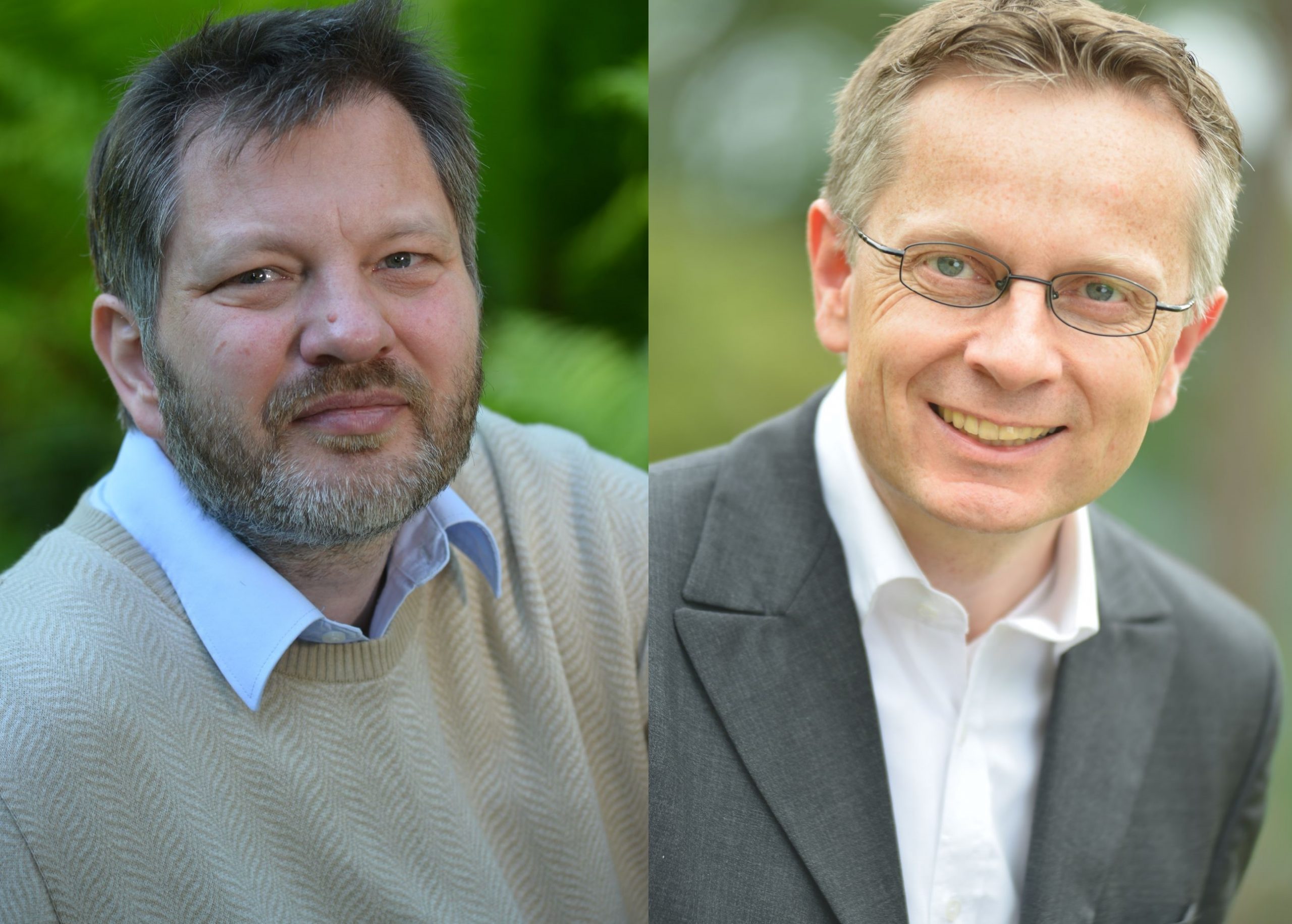Mathematical models, astrophysical simulations

The HITS scientists Volker Springel (Astrophysics) and Tilmann Gneiting (Mathematics) are among the highly cited researchers worldwide.
Two scientists of the Heidelberg Institute for Theoretical Studies (HITS) belong to the group of highly cited researchers worldwide. This is the result of the “Highly Cited Researchers” report by the Thomson Reuters Group. The astrophysicist Prof. Volker Springel (right) and the mathematician Prof. Tilmann Gneiting (left) rank among the scientists most cited for their subject field and year of publication – this is an important indicator for the scientific impact of a publication. Of the 3,125 most cited scientists worldwide, 167 have a primary or secondary affiliation with a German institution.
“For us as a small institute with a high degree of interdisciplinarity, it is a particularly gratifying success that two of our scientists are on this list,” says HITS founder Klaus Tschira. And HITS Managing Director Andreas Reuter adds: “We are pleased that the secondary affiliation of our scientists also supports our partner universities Heidelberg University and KIT in the international ranking.”
The astrophysicist Prof. Volker Springel designed and implemented the largest and most comprehensive computer simulation of the universe worldwide, beginning with the Millennium Simulation in 2005. He developed the “Arepo” code which enabled scientists to simulate the wide range of galaxy shapes and sizes with a supercomputer. An example for his work is the “Illustris” simulation which was recently published in the journal “Nature”: it is the most detailed computer simulation of galaxy formation. Volker Springel has been group leader of the research group “Theoretical Astrophysics” at HITS since 2010, and is a professor for Astrophysics at the University of Heidelberg.
Prof. Tilmann Gneiting’s research focuses on theory and practice of forecasts, and on spatial statistics. Years ago, he already developed real-time probabilistic weather forecasts. Tilmann Gneiting cooperates with the German Weather Service and the European Centre for Medium-Range Weather Forecasts in Reading, UK, in order to develop new approaches and statistical methods. Since November 2013, he has been group leader of the research group “Computational Statistics” at HITS, and is a professor at the Institute of Stochastics at the Karlsruhe Institute of Technology (KIT).
The citation frequency is an indicator for the scientific impact of a paper. The U.S. company Thomson Reuters determines this frequency by drawing on scientific databases. Their report analyzes how many publications of a scientist from the area of natural and social sciences as well as medicine were cited particularly often in publications of their colleagues. Publications from the years 2002-2013 were evaluated. For more information visit the website: highlycited.com
Press contact:
Dr. Peter Saueressig
Head of Communications
Heidelberg Institute for Theoretical Studies (HITS)
Phone: +49-6221-533245
Peter.saueressig@h-its.org
www.h-its.org
Twitter: @HITStudies
About HITS
HITS, the Heidelberg Institute for Theoretical Studies, was established in 2010 by physicist and SAP co-founder Klaus Tschira (1940-2015) and the Klaus Tschira Foundation as a private, non-profit research institute. HITS conducts basic research in the natural, mathematical, and computer sciences. Major research directions include complex simulations across scales, making sense of data, and enabling science via computational research. Application areas range from molecular biology to astrophysics. An essential characteristic of the Institute is interdisciplinarity, implemented in numerous cross-group and cross-disciplinary projects. The base funding of HITS is provided by the Klaus Tschira Foundation.